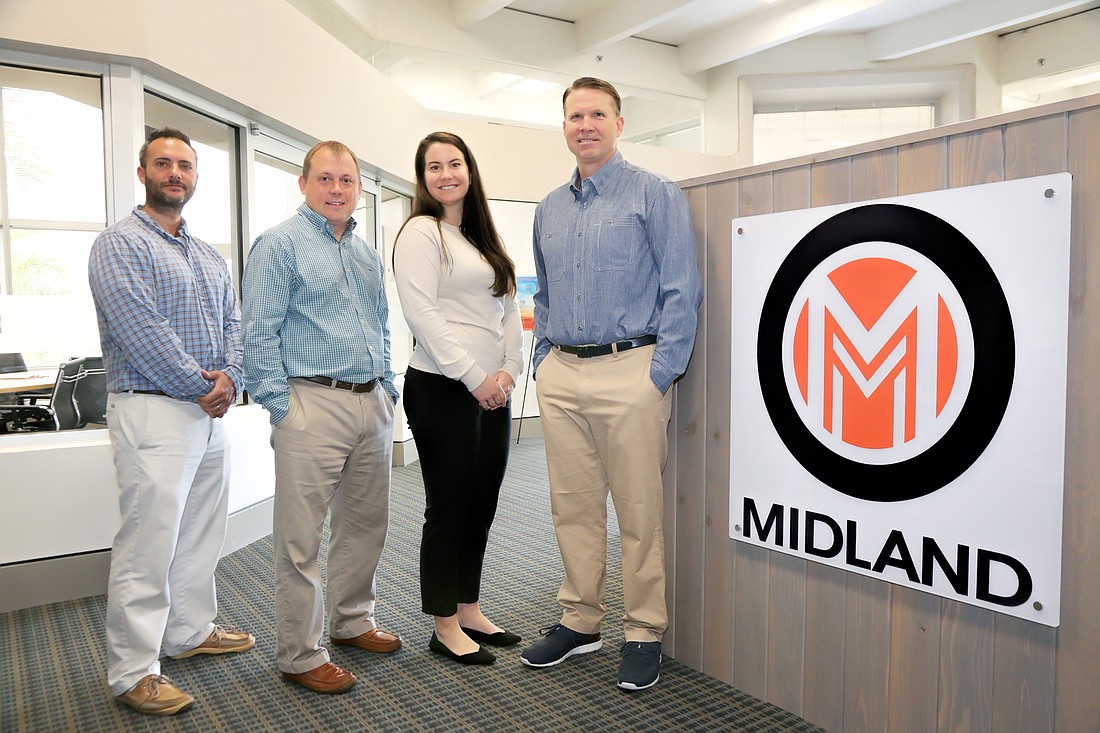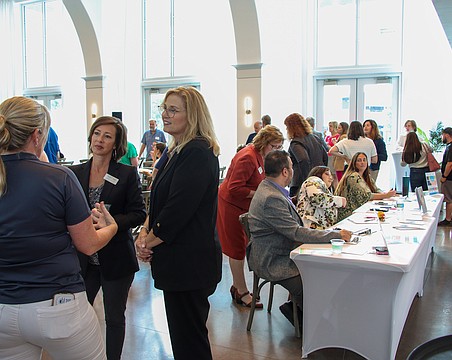Dave Owens realizes the importance of an exit strategy. That’s a big reason why the president and CEO of Fort Myers-based Midland Financial Corp. took the first steps to make the firm an employee-owned company at the end of January.
Owens, 54, is both continuing in his current role at Midland but also thinking about the next phases of his life and career. “I think everything is timing,” he says. “From my standpoint, we’ve been very successful as a business, and I was looking for some kind of strategy to slowly transition. I don’t want to just sell the business. I appreciate all that our people have done, and I like the [employee stock ownership plan] strategy, so I can share some of the success with them as we go forward.”
Midland Financial Corp., the holding company that owns Midland Trust Company and Midland IRA, specializes in 1031 exchanges and self-directed IRA custody and administration. Its 60 employees (15 are in a Chicago sales office, and five are in a Sioux Falls, S.D., trust office) now own 25% of the company through a new employee stock ownership trust.
“I like the flexibility of an ESOP,” Owens says. “I can decide how to do it and can do it in pieces.” He expects to take the next step in the ESOP process in about five years. He’s not sure about his own retirement timeline (or what retirement would even look like for him) but hopes “to be in a different role” at that point.
Although becoming an employee-owned company was the right move for Midland, Owens found the process complicated, with lots of different entities (attorneys, a valuation firm, a bank) involved in the ESOP transition. “I have the right employees and the right type of business that works great for it,” he says. “But my advice for another business owner is that you have to be ready for the complexities of it.”
‘I want my employees to enjoy the benefits of this business, and I want to give them that opportunity. I’m trying to get them to think like owners. I want them to make more decisions; I need them to.’ Dave Owens, Midland Financial Corp.
The payoffs should be well worth the challenges for Owens and his staff. “I want my employees to enjoy the benefits of this business, and I want to give them that opportunity,” he says. “I’m trying to get them to think like owners. I want them to make more decisions; I need them to.”
Midland Financial Corp. has about 16,000 clients and administers about $2.5 billion. Owens classifies the company as a mature business that sees about 10% revenue growth annually. He declines to provide specific revenue data.
Midland’s ESOP is essentially a qualified retirement plan based on company performance. Instead of the company making, say, a 3% match in a 401(k) plan, employees will get shares of the company each year with allocations based on compensation level. The better the company does, the better the employees do. Every employee now has a financial stake in Midland’s success, and an ESOP committee at the company works to educate all staff about that.
“They talk about how to improve the value of the company, so their retirement accounts go up,” Owens says. “I want them to embrace it and want them to know that the opportunity is there. Being someone who started the business, I’ve always been willing to roll my sleeves up and get dirty. I have a lot of younger employees in their 30s and early 40s, and I want them to roll their sleeves up too.”
As the owner of the company, Owens still has to hold up his end. “It’s one thing to own a business and be responsible for 60 payrolls every week,” he says. “But now I’m also responsible for their retirement accounts as well. So it’s not like it’s a stress-free endeavor. I can’t just walk away; I still have to run this business as long as I’m the owner of it. But I have very good employees, and I trust them and know they’re going to take the business to the next step.”






